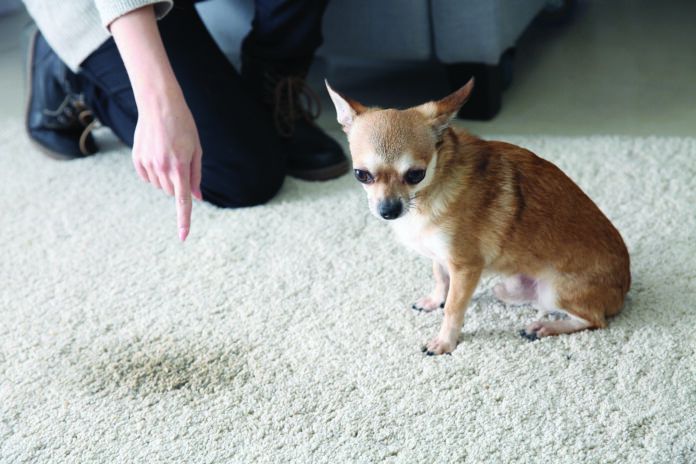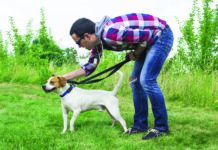You’ve been gone all day, and your dog trashes the house — or defecates on the rug when you know he can hold it in for the number of hours you were away. He’s doing it to let you know he’s displeased that you left him alone, right?
Wrong. “People tell me all the time that their dog is acting out of spite,” says Stephanie Borns-Weil, DVM, head of the Tufts Animal Behavior Clinic. “But spite is a human trait, not a dog trait. It takes a certain kind of planning. You have to plan to do something that someone else is not going to like, and then you have to follow through to get the desired effect. Dogs don’t have the forebrain capacity to do that kind of planning. They don’t even know what we don’t like. They only know what earns them a reward.
Why, then, do dogs sometimes do things that seem for all the world like they are trying to get our goat?
The reasons for seemingly spiteful behavior
Most often a dog acts in a way that appears to have malicious intent when he is feeling frightened or anxious. “A dog who feels panicked in your absence may very well eliminate inappropriately,” Dr. Borns-Weil says. “But that’s fear that’s making him lose control of his bowels, not anger. If you come home and get angry at him for having defecated in the house, he won’t even get it that that’s what you’re mad about. After all, he may have voided hours ago, and for him it was just a physiologic reaction to his panic. All he will know is that he was beside himself with alarm, and now you’re upset with him. Imagine if someone were angry at you in response to your feeling afraid. It would cut right into your bond with that person.”
It’s the same with a dog who goes through the trash or pulls the stuffing out of upholstered furniture. He’s not being spiteful or mean. “Think of the way you might chew the end of a pen or tear a piece of paper into tiny fragments if you are feeling anxious or uncomfortable,” Dr. Borns-Weil comments. “Your aim is not to destroy the object. It’s simply a displacement behavior to try to cope with a situation over which you don’t have control. That’s how it is for a dog, too.”
Reasons for destructive behavior other than anxiety
Sometimes dogs do things that inadvertently get our goat not because they are feeling anxious or afraid but simply because they are impulsive — and opportunistic. If it’s easy enough to pull the lid off the trash can and there’s some interesting odor or old pizza crust in there, a dog might very well go for it. It’s in his DNA to scavenge, and he’s especially going to want to scratch that biological itch if you’re not around or not available to provide your pet with environmental enrichment. “Such behaviors at those times are crimes of opportunity,” Dr. Borns-Weil says. “A dog might be bored, and you have left your home improperly secured, so it only stands to reason that he’s going to give in to his instinct to ‘research’ interesting scents.”
But, the doctor asks rhetorically, who in the end is really responsible for that behavior? The answer is you. You didn’t set the animal up for success by properly securing your home and providing interesting toys and games for your dog to play with in your absence.
You also need to provide environmental enrichment for your dog when you are around, Dr. Borns-Weil points out. The more time you spend engaging with your dog — exercising with him, playing with him, teaching him tricks, and perhaps taking him to classes like agility — the better your connection with him will be and the less likely he will be to need to find his own ways to try to calm down when feeling unnerved. He will also be less likely to find ways to make life interesting that are at odds with your efforts to create order in your home.





